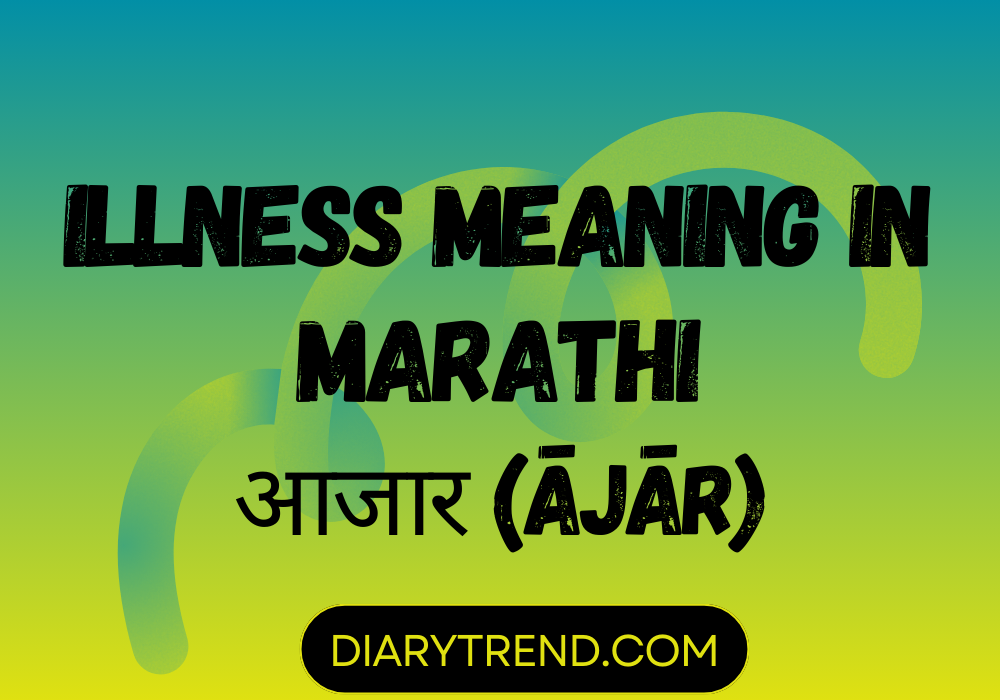Illness, or आजार (ājār) as it is known in Marathi, is a state that affects not just the physical body but also the emotional and social well-being of an individual. In Marathi culture, the concept of illness extends beyond the mere presence of disease to encompass a holistic view that includes the mind, body, and spirit. This perspective reflects the broader Indian ethos of wellness, which is deeply rooted in ancient practices and philosophies such as Ayurveda and yoga.
The Multifaceted Nature of आजार
आजार is not merely a symptom or a disease; it is an indication of imbalance. According to traditional Marathi and wider Indian beliefs, health is a state of harmony between the body (शरीर), mind (मन), and soul (आत्मा). When this balance is disturbed, आजार manifests. This holistic understanding encourages treatments that are not just curative but also preventive, focusing on diet, lifestyle, and mental health.
Cultural Practices and Traditional Remedies
Marathi culture, with its rich heritage of folk medicine and Ayurveda, offers a plethora of traditional remedies for various illnesses. Herbs, spices, and specific dietary practices are commonly used to prevent and treat आजार. Ingredients like turmeric (हळद), ginger (आले), and tulsi (तुळस) are staples in Marathi households, known for their medicinal properties. The monsoon season, for instance, sees an increase in the use of these ingredients to ward off seasonal आजार like colds and flu.
Modern Perspectives and Integrative Approaches
In contemporary Marathi society, there is a growing appreciation for the integration of modern medicine with traditional healing practices. Hospitals and wellness centers in Maharashtra are increasingly adopting holistic approaches to health, offering treatments that combine the latest medical advancements with traditional remedies and yoga. This integrative approach aims to treat आजार at its root, offering a more comprehensive path to wellness.
The Social Dimensions of आजार
Illness in Marathi culture is not seen as an isolated event that affects an individual but as a condition that impacts families and communities. The support system provided by the community plays a crucial role in the healing process. There is a strong tradition of caring for the sick within the family, and community health initiatives are common in both rural and urban areas of Maharashtra. This collective approach to health and wellness underscores the interconnectedness of individuals within society.
Conclusion
The concept of आजार in Marathi culture offers a window into the holistic and integrated approach to health and wellness that characterizes much of Indian society. By viewing illness not just as a physical ailment but as a disruption in the balance of body, mind, and spirit, Marathi traditions emphasize the importance of a comprehensive approach to health. In doing so, they offer valuable insights into how we might better understand and address illness in our own lives, highlighting the importance of community, tradition, and a balanced lifestyle in achieving overall well-being.
